Beer and wine
Beer and wine are taboo foods for people with gout. These foods contain large amounts of purines, in addition to other harmful substances to the body such as alcohol and yeast.
The large amount of purines in beer or alcoholic beverages is a major risk factor for making gout worse.
According to a report from Everyday Health, people who have a habit of drinking beer every day or abusing alcohol are 1.5 times more likely to get gout than others.
The large amount of purines in beer or alcoholic beverages is a major risk factor for making gout worse.
A warning about beer and wine that gout patients need to pay attention to, not only high purine content, alcohol and yeast are also the cause of gout attacks. This can make the disease worse, the intensity and frequency of joint pain will also increase.
Soft drinks, carbonated drinks
People with gout should avoid foods containing fructose, including soft drinks and carbonated beverages. Drinks high in fructose are also a factor that increases blood acid levels, leading to excess uric acid and causing gout.
People with gout should stay away from foods containing fructose, including soft drinks and carbonated beverages.
Fructose is also the sweetest sugar, so it is often used in soft drinks, carbonated drinks and other sweet foods. Therefore, gout patients should not drink these types of water during treatment to avoid reducing the effectiveness of treatment.
Energy drink
Energy drinks contain large amounts of fructose to sweeten the drink. Therefore, their nutritional value is similar to soft drinks and carbonated water. Drinking a lot of energy drinks will worsen gout due to the effects of excess fructose, causing uric acid in the blood to increase.
Some notes on nutrition for gout patients
The most important nutritional regimen for gout patients is to minimize the intake of foods high in purines and fructose. These are substances that increase uric acid in the blood, worsen the condition, and delay the treatment process. This is extremely important not only in treating gout, relieving symptoms, but also helping patients reduce the risk of recurrence later.
The most important nutritional regimen for gout patients is to limit the intake of foods high in purines and fructose.
In addition, a healthy, scientific diet including a variety of vitamins and minerals is recommended for gout patients to improve overall health. In particular, patients should focus on supplementing foods rich in calcium, vitamin D and vitamin C to improve bone health.
Detailed nutritional principles for people with gout are: Energy: 30 - 35 kcal/kg body weight/day; Protein: 0.8g/kg body weight/day; Fat: 18-25% of energy needs; Salt: no more than 5g/day; Water: 40ml/kg body weight/day.
Source: https://giadinh.suckhoedoisong.vn/do-uong-nay-nguoi-bi-gout-nen-tranh-tuyet-doi-172250424224657451.htm


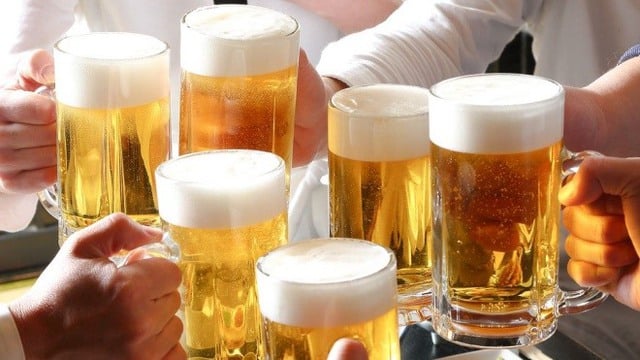
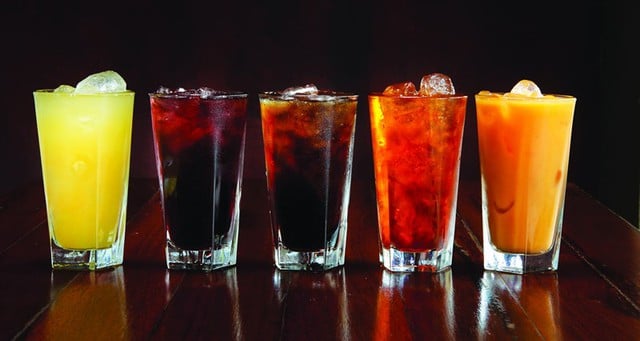
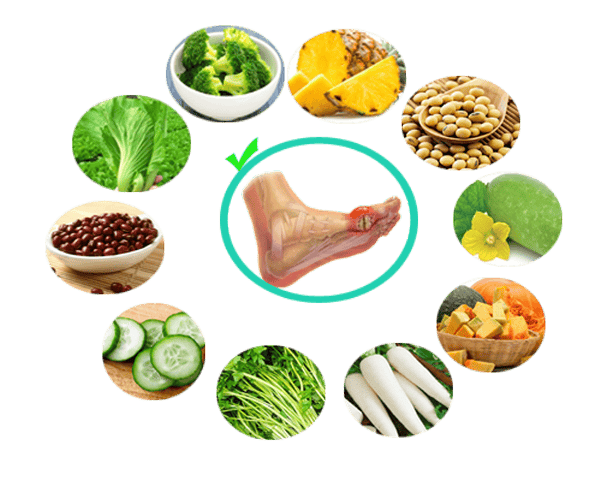
![[Photo] Ha Giang: Many key projects under construction during the holiday season](https://vphoto.vietnam.vn/thumb/1200x675/vietnam/resource/IMAGE/2025/5/1/8b8d87a9bd9b4d279bf5c1f71c030dec)

![[Photo] "Lovely" moments on the 30/4 holiday](https://vphoto.vietnam.vn/thumb/1200x675/vietnam/resource/IMAGE/2025/5/1/26d5d698f36b498287397db9e2f9d16c)


![[Photo] Binh Thuan organizes many special festivals on the occasion of April 30 and May 1](https://vphoto.vietnam.vn/thumb/1200x675/vietnam/resource/IMAGE/2025/5/1/5180af1d979642468ef6a3a9755d8d51)




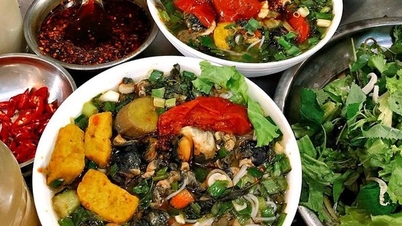









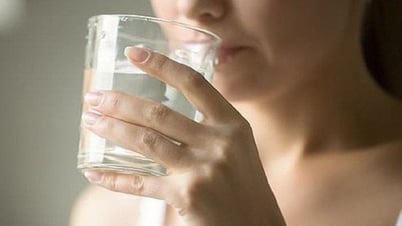








































































Comment (0)